[/caption]
Assembly of the powerful Atlas V booster that will rocket NASA’s Curiosity Mars Science Laboratory rover to Mars is nearly complete. The Atlas V is taking shape inside the Vertical Integration Facility at Space Launch Complex 41 at Cape Canaveral Air Force Station in Florida.
The rocket is built by United Launch Alliance under contract to NASA as part of NASA’s Launch Services Program to loft science satellites on expendable rockets.
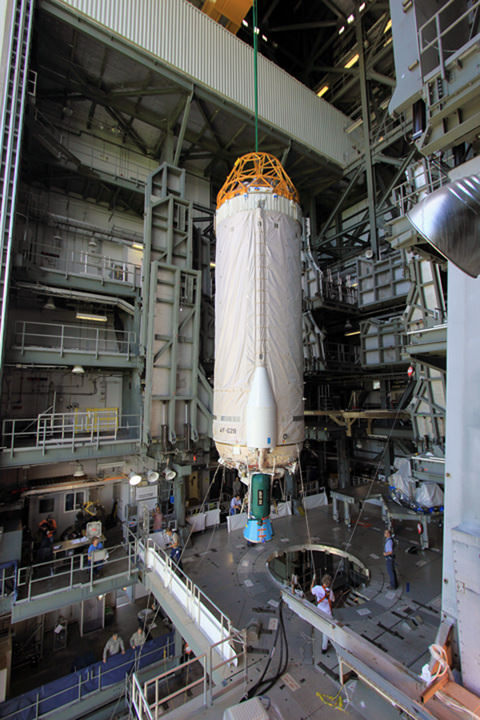
The Atlas V configuration for Curiosity is similar to the one used for Juno except that it employs one less solid rocket motor in a designation known as Atlas 541.
4 indicates a total of four solid rocket motors are attached to the base of the first stage vs. five solids for Juno. 5 indicates a five meter diameter payload fairing. 1 indicates use of a single engine Centaur upper stage.
Blastoff of Curiosity remains on schedule for Nov. 25, 2011, the day after the Thanksgiving holiday in the U.S. The launch window for a favorable orbital alignment to Mars remains open until Dec. 18 after which the mission would face a 26 month delay at a cost likely to be in the hundreds of millions of dollars.
Curiosity is set to touchdown on Mars at Gale Crater between August 6 & August 20, 2012. The compact car sized rover is equipped with 10 science instruments that will search for signs of habitats that could potentially support martian microbial life, past or present if it ever existed.
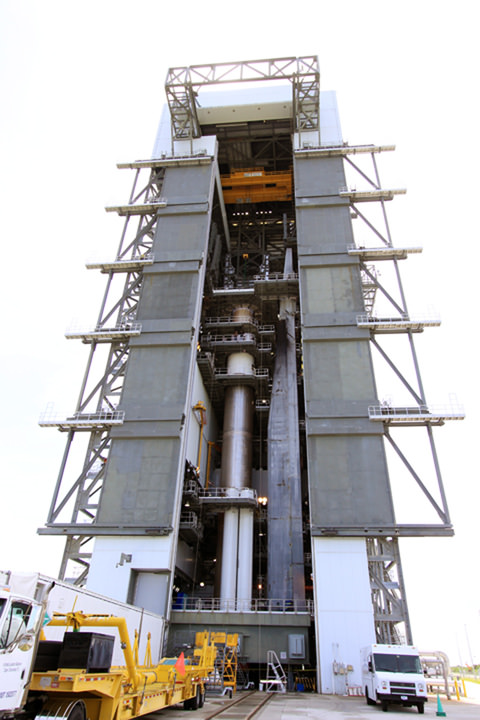
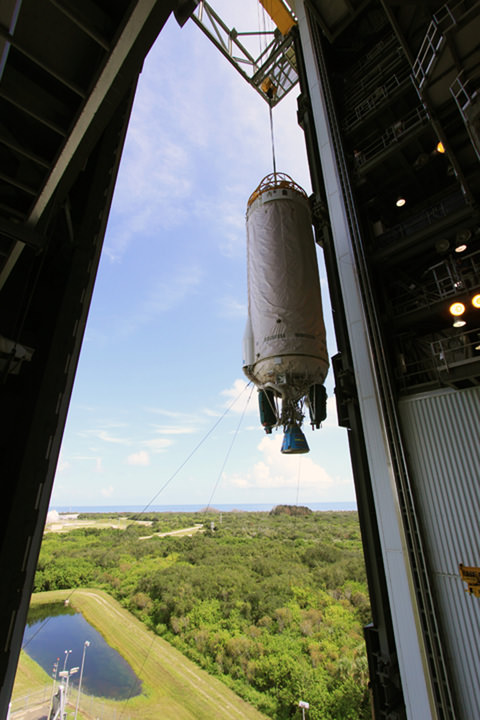
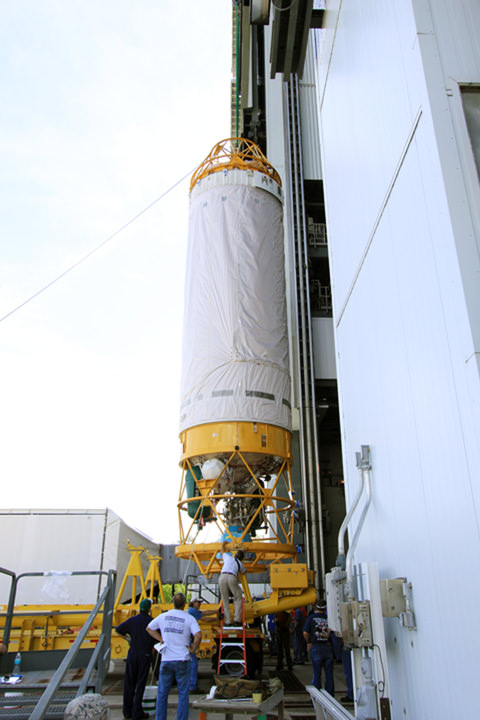
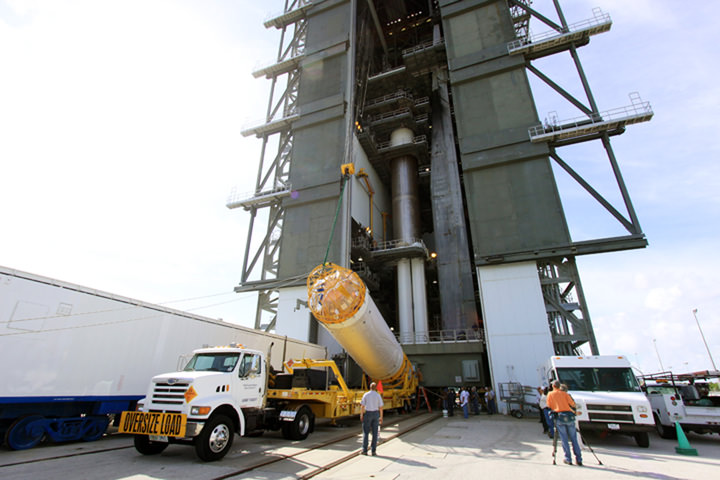
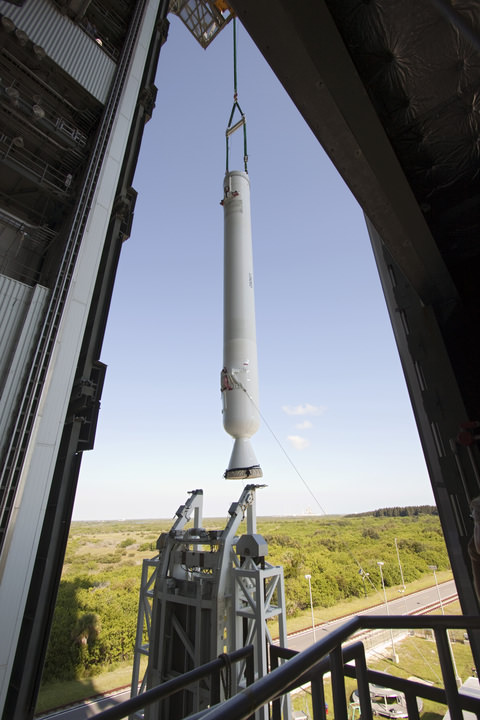
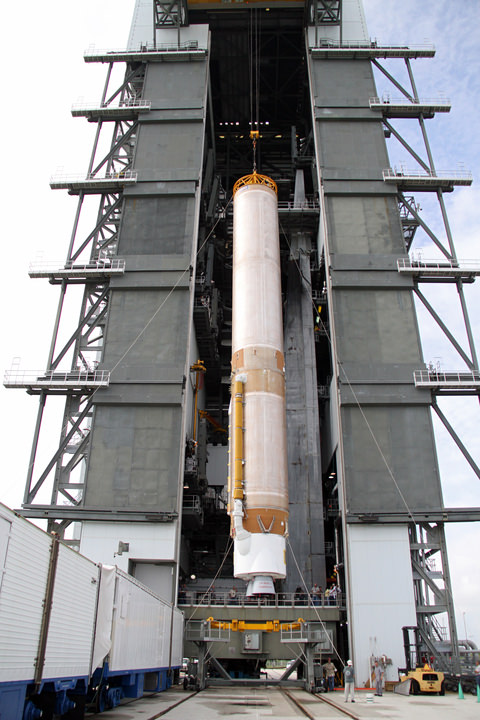
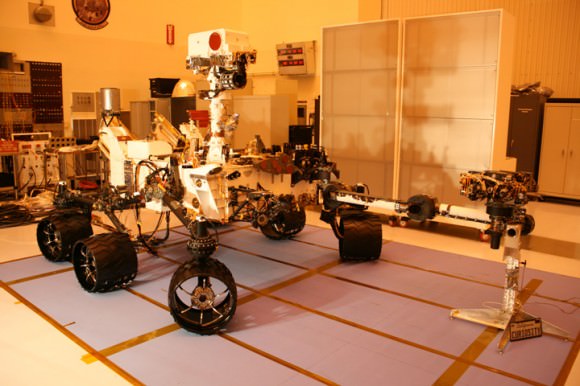
Meanwhile NASA’s Opportunity Mars rover is nearing 8 continuous years of Exploration and Discovery around the Meridiani Planum region of the Red Planet.
Read Ken’s continuing features about Curiosity and Opportunity starting here:
Encapsulating Curiosity for Martian Flight Test
Dramatic New NASA Animation Depicts Next Mars Rover in Action
Opportunity spotted Exploring vast Endeavour Crater from Mars Orbit
Twin Towers 9/11 Tribute by Opportunity Mars RoverNASA Robot arrives at ‘New’ Landing Site holding Clues to Ancient Water Flow on Mars
Opportunity Arrives at Huge Martian Crater with Superb Science and Scenic Outlook
Opportunity Snaps Gorgeous Vistas nearing the Foothills of Giant Endeavour Crater
Opportunity Rover Heads for Spirit Point to Honor Dead Martian Sister; Science Team Tributes


Human’s Extreme work land on the Martian Moon Phobos and return a cargo of precious soil samples back to Earth We will find sure our orgnism from the sample.
Best of Luck Back to earth with sample.
Sam.G
SRCOM
Spase Research Center Of India.
God Speed, Curiosity